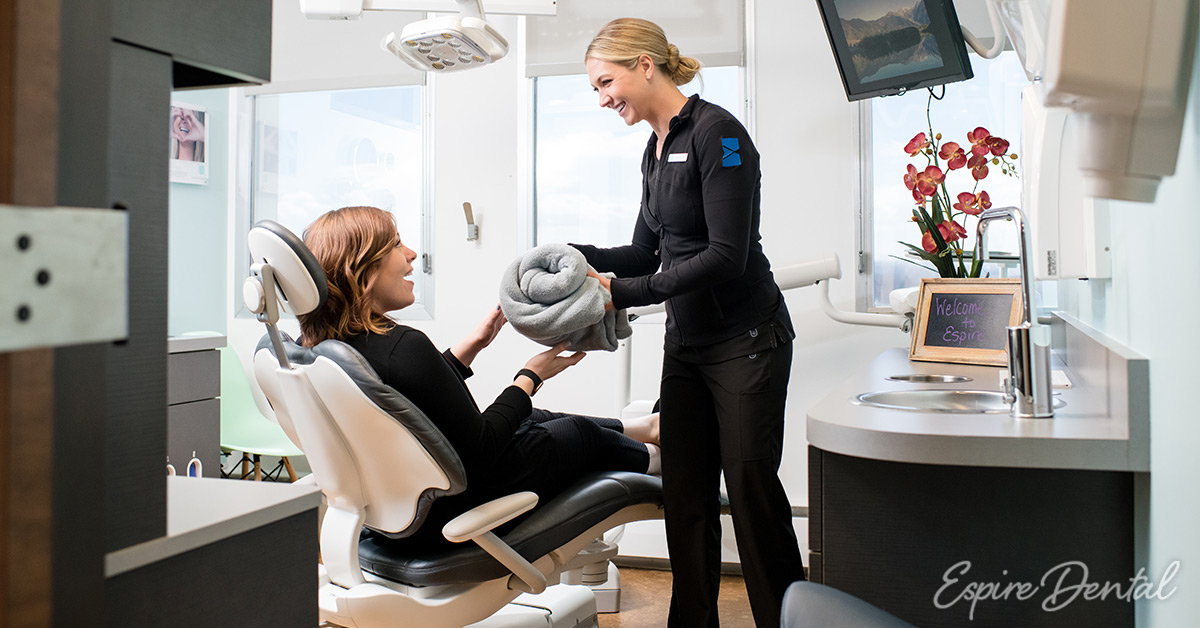
Having a tooth pulled can be a stressful ordeal — but with the right preparation, you can ensure that your recovery is as swift and painless as possible.
We know that visiting the dentist can be a stressful experience — according to some studies, nearly 60 percent of people are afraid to do so. We also know that tooth extraction is one of the more dreaded dental procedures, but sometimes they are necessary for the sake of your dental health.
To dispel some of the fear around the procedure, we wanted to share some information about why you might need a tooth removed. The following steps can be taken before and after a tooth extraction to help make the recovery as painless and swift as possible.
Why You Might Need a Tooth Extracted
There are a number of reasons to have a tooth removed, a frequent one being that a tooth might be too damaged. Whether from trauma or age-related decay, an excessive amount of damage can prevent your tooth from being repaired effectively. A few other common reasons include:
- Orthodontia. Braces are meant to bring the teeth into proper alignment, which can be difficult or impossible if your teeth are too large. While it may seem drastic, pulling teeth can actually speed along the process by creating room for teeth to sit correctly.
- Infection. At the center of a tooth is the pulp, which is where the nerves and blood vessels live. If decay or damage reaches the pulp, bacteria can enter the tooth and cause an infection. Root canals can often address the issues, but if the infection is severe enough, the tooth will need to be pulled to stop the infection from spreading.
- Gum disease. Periodontal disease is an infection of the bone and tissue that support the teeth and hold them in place. Infection can lead to teeth becoming loose in the jaw, which may make extraction necessary.
- Wisdom teeth. Often removed when people are in their teens and early twenties, these teeth are prone to getting stuck in the jaw (“impacted” is the technical term) and can cause pain, swelling, and even cysts or infections.
How to Prepare for a Tooth Extraction
Before scheduling your procedure, your dentist will take an X-ray of your mouth to examine the issue. It’s important that you let your dentist know if you’re taking any medications or supplements, as well as if you have other medical conditions. If you have any questions about whether a specific condition will interfere with the procedure, contact your dentist.
A few other things to keep in mind are that you cannot eat or drink for six to eight hours prior to your procedure. You should also avoid smoking beforehand. If you’re receiving anesthesia for the extraction, you’ll also need someone to help get you home.
What to Do After Extraction
After the tooth is removed, a blood clot will form. One of the most important things you can do in the recovery process is to make sure that the clot stays put. Caring for the clot is essential — this will help your mouth heal more quickly and prevent painful complications like dry socket.
Depending on the type of extraction and location of the tooth, recovery can take between seven to ten days. A few things you can do during those days to help heal include:
- Relaxing, especially during the first 24 hours.
- Applying an ice pack to reduce swelling.
- Not smoking or using straws for at least 24 hours.
- Eating soft foods at first, and then gradually returning to your regular diet.
- Keeping your head propped up with pillows when lying down.
- Gently rinsing your mouth with warm salt water.
Having teeth pulled can be an unpleasant process, but taking a few extra steps to ensure that you’re prepared before and after the procedure will go a long way to making your recovery as smooth and quick as possible.
Worried you might need to have a tooth removed? Schedule an appointment with Espire Dental today. Our team of experts are happy to help you through the process, as well as discuss what other options — like dentures and dental implants — might be available to you.


